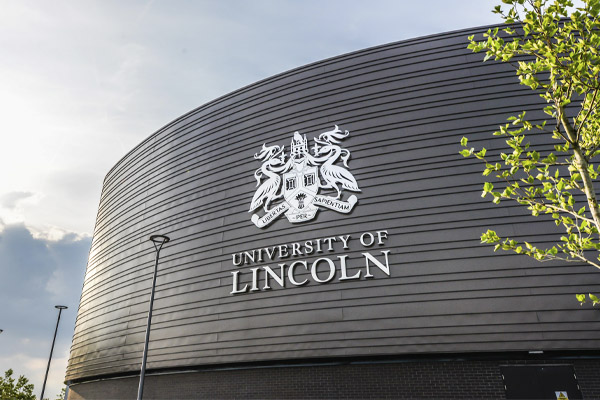The University of Lincoln, situated in the historic city of Lincoln, England, is a prominent institution known for its commitment to providing high-quality education, fostering research, and engaging with the local and global community. Established in its current form in 1992, the university has quickly grown into a dynamic and innovative educational institution with a strong reputation for excellence in teaching, research, and community engagement.
Historical Background
The roots of the University of Lincoln can be traced back to the 19th century, with the foundation of various educational institutions in Lincolnshire. The modern university was formed through the amalgamation of several colleges and institutions, including the Lincoln School of Art and the Lincoln College of Higher Education. It was granted university status in 1992, marking a significant milestone in its evolution and development.
Since its inception, the University of Lincoln has undergone significant growth and transformation. It has expanded its academic offerings, facilities, and student population, establishing itself as a leading educational institution in the region. The university’s commitment to innovation and excellence has been a driving force behind its development and success.
Campus and Facilities
The University of Lincoln’s main campus is located on Brayford Pool, a picturesque waterfront area in the heart of Lincoln. The campus is known for its modern and purpose-built facilities, which provide an excellent environment for learning, research, and student life. The campus design integrates contemporary architecture with the natural beauty of the surrounding area, creating a vibrant and inspiring setting for students and staff.
1. Academic Buildings
The university’s academic buildings are equipped with state-of-the-art facilities that support a wide range of disciplines. The Engineering Hub, for example, is a cutting-edge facility that houses advanced laboratories and workshops for engineering students. Similarly, the Lincoln School of Design features specialized studios and equipment for students pursuing design and creative courses.
The campus also includes dedicated spaces for the arts and humanities, including the Lincoln Performing Arts Centre, which hosts performances, exhibitions, and cultural events. The Library, a central resource for students and researchers, provides access to extensive collections of books, journals, and digital resources, along with study spaces and support services.
2. Student Accommodation
The University of Lincoln offers a variety of student accommodation options, including modern halls of residence and private rental properties. The halls of residence are situated close to the main campus and provide a range of living options, from shared flats to en-suite rooms. The university is committed to providing high-quality accommodation that supports student well-being and fosters a sense of community.
3. Recreational and Social Facilities
In addition to academic facilities, the University of Lincoln boasts a range of recreational and social amenities. The Student Union is a hub for student activities, offering social events, clubs, and societies. The campus also features sports facilities, including a gym, sports hall, and outdoor sports pitches, which support a wide range of physical activities and sports.
Academic Programs and Research
The University of Lincoln offers a diverse array of undergraduate and postgraduate programs across various fields of study. The university is organized into several academic schools, each specializing in different disciplines:
1. Business and Management
The Lincoln International Business School provides programs that prepare students for careers in business and management. The school emphasizes practical experience and industry connections, offering opportunities for internships, placements, and collaborative projects with businesses.
2. Engineering and Computer Science
The School of Engineering and the School of Computer Science offer programs that reflect the latest developments in technology and engineering. Students benefit from hands-on learning experiences, advanced laboratories, and strong links with industry.
3. Arts and Humanities
The School of Fine and Performing Arts and the School of Humanities and Heritage offer programs in creative fields, including art, drama, music, and history. These schools are known for their innovative teaching methods, creative projects, and opportunities for professional development.
4. Health and Social Care
The School of Health and Social Care provides programs in areas such as nursing, social work, and public health. The school emphasizes practical training and clinical placements, preparing students for careers in healthcare and social services.
5. Science and Environment
The School of Life Sciences and the School of Geography offer programs in scientific and environmental disciplines. Students have access to research facilities and fieldwork opportunities that enhance their learning and contribute to important research projects.
6. Law and Politics
The School of Law and the School of Social and Political Sciences offer programs that explore legal and political systems. The curriculum includes opportunities for practical experience, such as mooting competitions and placements with legal firms and government agencies.
Research Excellence
The University of Lincoln is recognized for its research excellence, with a focus on applied research that addresses real-world challenges. Research centers and institutes across various disciplines conduct cutting-edge research, contributing to advancements in fields such as engineering, health, and social sciences.
The university’s research strategy emphasizes collaboration with industry, government, and international partners. Research projects often involve interdisciplinary approaches and seek to have a tangible impact on society and the economy.
Community Engagement and Global Reach
The University of Lincoln is committed to engaging with the local community and making a positive impact on the region. The university collaborates with local organizations, businesses, and schools to support community development and provide opportunities for students to get involved in community-based projects.
Internationalization is also a key aspect of the university’s strategy. The University of Lincoln attracts students from around the world and has established partnerships with universities and institutions globally. These international connections enhance the university’s educational offerings and provide students with opportunities for study abroad, exchange programs, and global research collaborations.
Student Life and Support
The University of Lincoln places a strong emphasis on student well-being and support. The university offers a range of services to help students succeed academically and personally. These services include academic advising, career guidance, mental health support, and counseling.
The Student Union plays a central role in student life, providing a range of activities, clubs, and societies that enrich the student experience. The union also represents students’ interests and works to enhance the overall student experience.
The university’s commitment to diversity and inclusion is reflected in its policies and practices, which aim to create an inclusive and supportive environment for all students. The university actively promotes equal opportunities and works to ensure that students from diverse backgrounds have access to the support and resources they need.
Conclusion
The University of Lincoln stands out as a modern and forward-thinking institution that combines a rich historical legacy with a commitment to innovation and excellence. Its state-of-the-art facilities, diverse academic programs, and strong emphasis on research and community engagement make it a prominent educational institution in the UK.
With its vibrant campus life, supportive environment, and global perspective, the University of Lincoln provides students with a comprehensive and enriching educational experience. As it continues to grow and evolve, the university remains dedicated to fostering academic success, research excellence, and positive societal impact.

